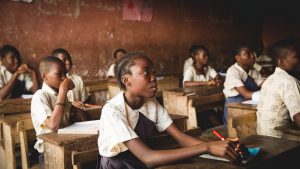Jambo again! Unfortunately this inquiry project has come to a disappointing end. Due to the covid-19 virus and its impact around the world, my international practicum in Tanzania has been cancelled. Though I understand the decision made by UVic, it is still heartbreaking to know that I will not have this experience. However, I have really enjoyed learning some Swahili words and phrases, as well as some of the history of the language. Here is a quick summary of the biggest things I learned through this process:
- Swahili originated from a mix of local Bantu languages and Arabic
- It is a fairly easy language to learn as it is mostly spoken as it reads
- Hello!Jambo is a helpful app to learn some of the basic words and phrases, but it is very limited if you are looking to go beyond the basics
- There are about 15 Swahili dialects, but kiUnguja is the most common
- Creating a travel booklet for some of the most helpful words and phrases is a good idea. It is difficult to have all of the words and phrases memorized, so having a little notebook handy that you can refer to would be helpful.
Though I am incredibly sad that I won’t get to use the Swahili I have learned right now, I am staying hopeful and determined that I will get the chance to use it down the road. Maybe an opportunity will arise for next years’ practicum, or maybe it is a goal I will have to set and work towards to travel to Africa on my own when I am done school. Either way, if you have the opportunity to learn a bit of another language, take it! Swahili has been fun to learn, and I plan to keep up on the words I now know, so that they will still be in my memory down the road when I need them. Once again, Kwaheri for now.





Recent Comments